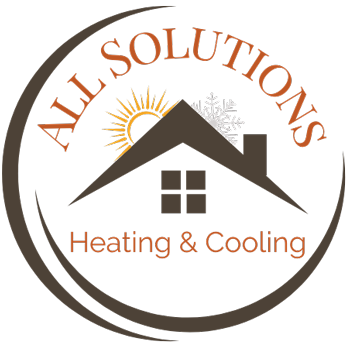
With winter approaching, you might be thinking about how well your outdated air source heat pump is going to operate this year. You might also be curious if now is a wise time to do heat pump installation.
A new air source heat pump is more energy efficient and can help you save big on energy costs over its lifetime.
They’re a combined heating system and cooling system. These heat pumps transfer heat from the outdoor air to make your house cooler or warmer. They don’t create heat or air conditioning like a natural gas furnace or a traditional central air conditioner. A heat pump has indoor and outdoor units that work together to provide you with heating and cooling.
We’re going to discuss this topic now, plus:
- How air source heat pump efficiency ratings like SEER and HSPF impact your energy bill.
- How ENERGY STAR® certification can help you spend less money.
- How to select an energy-efficient heat pump system for your home.
What Is SEER in Heat Pump?
SEER (Seasonal Energy Efficiency Ratio) is a heat pump rating system that evaluates how efficient air source heat pumps are at utilizing electricity for air conditioning. The higher the SEER, the better they are at transferring heat during the cooling season.
What Is a Good SEER Rating for a Heat Pump?
A heat pump with a SEER between 14 and 16 is considered to have good energy efficiency.
What Is HSPF in Heat Pumps?
HSPF (Heating Seasonal Performance Factor) is another heat pump rating system that measures how well air source heat pumps will operate during the heating season. The greater the number, the better your heating system will be at utilizing electricity for warm air. This is very important for saving money in colder climates, because your heat pump won’t have to work as hard as it transfers heat.
What Is a Good HSPF Rating for a Heat Pump?
Heat pump systems with an HSPF between 8 and 10 are considered to be energy efficient and can help keep heating costs down during cold weather.
What Does ENERGY STAR Mean on a Heat Pump?
ENERGY STAR air source heat pumps meet strict requirements established by the U.S. Environmental Protection Agency (EPA) for both heating efficiency and cooling efficiency, so you know these high-efficiency heat pumps will run well.
Air source heat pumps qualify for ENERGY STAR if they have:
- HSPF rating of 8.5 or higher
- SEER rating of 15 or higher
- This can reduce your heat pump’s operating costs, as well as decrease greenhouse gas emissions that contribute to global climate change.
How to Choose an Energy-Efficient Heat Pump
When selecting your heat pump’s efficiency rating, just like any other household equipment, the most important thing is to choose one that has an energy-efficiency rating that you can afford.
If your budget only fits a heat pump with lower ratings, don’t fret! Even a new one with a lower rating is going to consume less energy than one that’s 10 or 15 years old. Here’s why.
- From 1999 to 2005, federal guidelines mandated air source heat pumps to have a 10 SEER rating.
- That number increased to 13 from 2006 to 2014.
- Today, a new heat pump should be at least 14 SEER.
- So, switching from 10 SEER to 14 SEER will make a big difference on your heating and cooling bill.
It’s also essential to know that the majority of heat pumps only last around 15-20 years with appropriate maintenance. When yours starts to get close to this age, you’ll want to think about replacing it.
In previous years, heat pumps were limited to locations that didn’t have cold climates, because of the way heat pumps work to extract heat from the air. Today’s heat pump systems are also created to withstand colder outdoor air and a cold climate during the winter. This reduces your reliance on a supplemental heat source, electric resistance heating or baseboard heaters during the heating season.
Upgrading your heat pump with All Solutions Heating & Cooling may be more affordable than you realize. Between rebates, special offers and financing for qualified customers, buying new HVAC systems may be more budget friendly than you realize.
It’s not easy to find the time and money to switch aging air source systems. But if you want more comfortable home temperatures with cheaper energy costs in the future, it might be a good idea to check out new heat pump units.
At All Solutions Heating & Cooling we make upgrading a convenient process by providing free estimate appointments for air source heat pumps. Just give us a call at 971-245-2459 to request yours now. We’re proud to offer heat pump installation in Beaverton your friends and neighbors have trusted since year.



